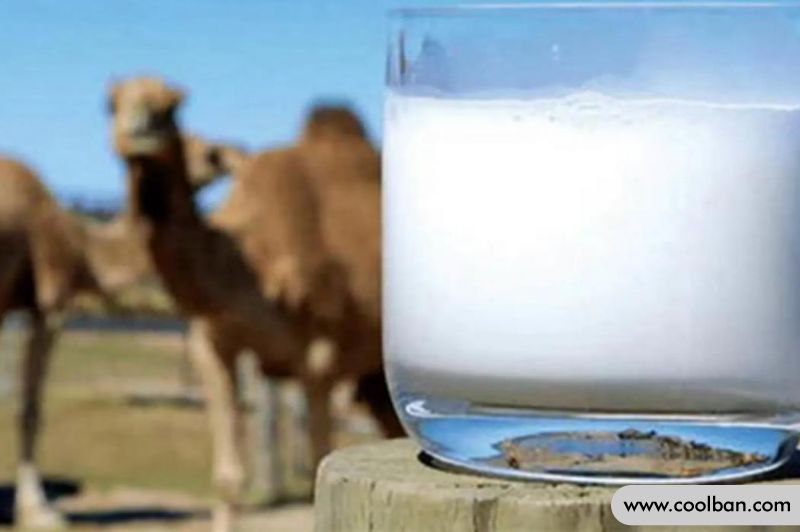What are the nutritional benefits of camel milk?
2022-03-24
Camel milk is nutritious, low-fat and healthy, making it the best choice for modern nutritional supplements. Camel milk can help people with diabetes reduce their need for insulin, it’s also good for newborns because it’s free of allergens, and it’s also been shown to benefit people with peptic ulcers and high blood pressure.
The protein in camel milk is high-quality protein, and its nutritional content and nutritional value are relatively high. Its protein digestion and absorption rate is as high as 98%, calcium absorption rate is as high as 70% (general food is 20%-30%), and it also contains more vitamins A and B vitamins. Therefore, the nutritional composition and composition ratio of camel milk are unmatched by other foods. In addition, camel milk also contains a lot of protective proteins, such as lysozyme, immunoglobulin, etc. In recent years, with the in-depth study of camel milk, it has been found that regular consumption of camel milk has many benefits to the human body.

16 nutrients in camel milk
1. Camel milk contains a lot of phosphorus, which plays a vital role in promoting the brain development of infants and young children.
2. Camel milk contains a lot of active calcium, which is beneficial to the absorption of the human body, can strengthen the bones and teeth, reduce the incidence of bone atrophy, and promote the intellectual development and physical development of infants and young children.
3. Camel milk contains potassium, which can keep the arterial wall stable and reduce the occurrence of stroke.
4. Camel milk contains lactoferrin, which can absorb heavy metal ions; it can promote the proliferation of intestinal mucosal cells, regulate the phagocytic function of intestinal mucosal macrophages; it can regulate the generation of bone marrow cells and the immune function of the body's mucosa, and regulate the body's immune function. Adjust the body's complement system activity and inflammatory response, stimulate a series of biological activities such as lysozyme regeneration.
5. The lactoperoxidase system in camel milk can passivate many microorganisms, inhibit the growth and reproduction or metabolic activities of bacteria, and even kill bacteria, thereby enhancing human immunity.
6. Camel milk contains vitamin B2, which can improve eyesight.
7. Beta-casein in camel milk has a strong anti-mutation mechanism, which can reduce cell canceration.
8. Camel milk fat contains an appropriate amount of cholesterol, which is indispensable for adults, especially infants and young children whose tissues and organs are in the growth and development period.
9. The iron, copper and vitamin A in camel milk have cosmetic properties that keep the skin smooth and plump.
10. Camel milk can be used to treat stomach ulcers and diarrhea, and to help treat infectious diseases such as liver disease.
11. Camel milk can enhance the function of the human immune system and prevent the growth of tumor cells.
12. Camel milk can prevent arteriosclerosis.
13. Camel milk protein contains insulin-like fragments that can relieve diabetes. In recent years, studies have found that camel milk can regulate and improve insulin beta cells, restore insulin function, and help lower blood sugar.
14. Camel milk is rich in protein, fat, minerals and many vitamins. In addition to providing rich nutrition for the human body, it also has a diuretic effect, which can enhance blood circulation, diuretic and detoxify, and has a certain effect on the treatment of kidney diseases.
15. Fermented camel milk has the effect of enhancing immunity and preventing the proliferation of cancer cells.
16. According to expert research, drinking a cup of camel milk every morning can meet 40% of the various trace elements required by the human body, and drinking 500mL of camel milk can meet 50% of the human body's daily needs for vitamins and calcium, and has anti-cancer properties . This is unmatched by other foods and any artificial nutrition.

The efficacy and role of camel milk
Camel milk is mainly produced in Saudi Arabia, Sudan, Mali, United Arab Emirates, Kenya, Ethiopia, Chad, Mauritania and other countries. In my country, only the nomads in the northern grasslands drink camel milk. It is the milk of the animal camel and is rich in nutrients. It has high nutritional value and has the functions of strengthening muscles and bones, nourishing essence, resisting joints and quenching thirst.
1. Calcium supplement
Camel milk is rich in calcium, phosphorus, potassium, sodium and other minerals, especially calcium and phosphorus content is high, and the proportion is appropriate, the absorption rate is high. Camel milk has a calcium content of 154.57-186.87 mg/100 g and an iron content of 222.58 mg/100 g. In addition, it also contains vitamin D, which can promote intestinal absorption of calcium and phosphorus. Therefore, camel milk can also be used as a high-quality source of calcium and phosphorus for the human body.
2. Improve immunity
Camel milk is a special therapeutic diet. According to the research results, it contains 18 kinds of amino acids that are beneficial to the human body; the vitamin content is about 3.8 times that of milk; the iron content is about 10 times that of milk; the natural insulin that lowers blood sugar is about 3000 times that of milk; camel milk is high in protein Compared to milk, it is higher in calcium and lower in fat than milk; it contains lactoferrin and lysozyme that are not found in milk. After eating camel milk, physical strength and energy are significantly improved, sleep quality is improved, fatigue and lethargy are improved, and physical condition is significantly improved; gastrointestinal function is improved, appetite is enhanced, digestion and absorption function is improved, and it is not easy to catch a cold.
3. Help digestion and absorption
Camel milk is rich in bifidobacteria V9, lactic acid bacteria, lactoferrin, lysozyme P8 and 18 kinds of amino acids, which can effectively remove harmful substances in the gastrointestinal tract, prevent the occurrence of gastric cancer, and help the elderly to keep fit. It has obvious effects on nourishing the stomach, protecting the liver and protecting the liver. Scientific research has shown that regular consumption of camel milk in older adults can help the digestive system to digest better.
4. Vitamin C supplement
Camel milk is high in vitamin C. 100g of camel milk contains about 3mg of vitamin C, which is very high in dairy products. Consuming it can prevent scurvy, as well as antioxidants and beauty.
5. Protect cardiovascular and cerebrovascular
Camel milk is the only food among terrestrial animals that contains unsaturated fatty acids. These fatty acids have strong antioxidant properties, can help scavenge free radicals, and can inversely lower LDL and promote the breakdown of cholesterol and fat in the stomach. Nutrients necessary for the normal functioning of the brain can prevent cardiovascular and cerebrovascular diseases, improve blood viscosity and lower blood pressure.
6.Insulin-like factor
Camel milk contains insulin-like factors that remain active after consumption. It can directly act on the pancreas, promote the secretion of insulin, and has a good therapeutic effect on diabetes caused by decreased insulin secretion.

Babies under one year old cannot eat directly
"Camel milk (including cow's milk, goat's milk and other animal milks) is not a food that can be eaten directly for infants. Because they are very different in composition from breast milk, they cannot be fed directly to infants." Casein in breast milk The ratio to whey protein is about 1:2, while the ratio of animal milk is very different and cannot be eaten directly by infants.
According to the World Health Organization, infants should be fed breast milk or other milk-based formula for 0-6 months, and complementary foods should be added after 6 months, while continuing to eat breast milk or formula. After one year of age, you can start introducing other dairy products to your baby.
"After the age of one, if your child is not particularly allergic, you can start giving your child camel milk. But that doesn't mean camel milk is better, and it doesn't have a higher nutritional value."
The protein in camel milk is high-quality protein, and its nutritional content and nutritional value are relatively high. Its protein digestion and absorption rate is as high as 98%, calcium absorption rate is as high as 70% (general food is 20%-30%), and it also contains more vitamins A and B vitamins. Therefore, the nutritional composition and composition ratio of camel milk are unmatched by other foods. In addition, camel milk also contains a lot of protective proteins, such as lysozyme, immunoglobulin, etc. In recent years, with the in-depth study of camel milk, it has been found that regular consumption of camel milk has many benefits to the human body.

16 nutrients in camel milk
1. Camel milk contains a lot of phosphorus, which plays a vital role in promoting the brain development of infants and young children.
2. Camel milk contains a lot of active calcium, which is beneficial to the absorption of the human body, can strengthen the bones and teeth, reduce the incidence of bone atrophy, and promote the intellectual development and physical development of infants and young children.
3. Camel milk contains potassium, which can keep the arterial wall stable and reduce the occurrence of stroke.
4. Camel milk contains lactoferrin, which can absorb heavy metal ions; it can promote the proliferation of intestinal mucosal cells, regulate the phagocytic function of intestinal mucosal macrophages; it can regulate the generation of bone marrow cells and the immune function of the body's mucosa, and regulate the body's immune function. Adjust the body's complement system activity and inflammatory response, stimulate a series of biological activities such as lysozyme regeneration.
5. The lactoperoxidase system in camel milk can passivate many microorganisms, inhibit the growth and reproduction or metabolic activities of bacteria, and even kill bacteria, thereby enhancing human immunity.
6. Camel milk contains vitamin B2, which can improve eyesight.
7. Beta-casein in camel milk has a strong anti-mutation mechanism, which can reduce cell canceration.
8. Camel milk fat contains an appropriate amount of cholesterol, which is indispensable for adults, especially infants and young children whose tissues and organs are in the growth and development period.
9. The iron, copper and vitamin A in camel milk have cosmetic properties that keep the skin smooth and plump.
10. Camel milk can be used to treat stomach ulcers and diarrhea, and to help treat infectious diseases such as liver disease.
11. Camel milk can enhance the function of the human immune system and prevent the growth of tumor cells.
12. Camel milk can prevent arteriosclerosis.
13. Camel milk protein contains insulin-like fragments that can relieve diabetes. In recent years, studies have found that camel milk can regulate and improve insulin beta cells, restore insulin function, and help lower blood sugar.
14. Camel milk is rich in protein, fat, minerals and many vitamins. In addition to providing rich nutrition for the human body, it also has a diuretic effect, which can enhance blood circulation, diuretic and detoxify, and has a certain effect on the treatment of kidney diseases.
15. Fermented camel milk has the effect of enhancing immunity and preventing the proliferation of cancer cells.
16. According to expert research, drinking a cup of camel milk every morning can meet 40% of the various trace elements required by the human body, and drinking 500mL of camel milk can meet 50% of the human body's daily needs for vitamins and calcium, and has anti-cancer properties . This is unmatched by other foods and any artificial nutrition.

The efficacy and role of camel milk
Camel milk is mainly produced in Saudi Arabia, Sudan, Mali, United Arab Emirates, Kenya, Ethiopia, Chad, Mauritania and other countries. In my country, only the nomads in the northern grasslands drink camel milk. It is the milk of the animal camel and is rich in nutrients. It has high nutritional value and has the functions of strengthening muscles and bones, nourishing essence, resisting joints and quenching thirst.
1. Calcium supplement
Camel milk is rich in calcium, phosphorus, potassium, sodium and other minerals, especially calcium and phosphorus content is high, and the proportion is appropriate, the absorption rate is high. Camel milk has a calcium content of 154.57-186.87 mg/100 g and an iron content of 222.58 mg/100 g. In addition, it also contains vitamin D, which can promote intestinal absorption of calcium and phosphorus. Therefore, camel milk can also be used as a high-quality source of calcium and phosphorus for the human body.
2. Improve immunity
Camel milk is a special therapeutic diet. According to the research results, it contains 18 kinds of amino acids that are beneficial to the human body; the vitamin content is about 3.8 times that of milk; the iron content is about 10 times that of milk; the natural insulin that lowers blood sugar is about 3000 times that of milk; camel milk is high in protein Compared to milk, it is higher in calcium and lower in fat than milk; it contains lactoferrin and lysozyme that are not found in milk. After eating camel milk, physical strength and energy are significantly improved, sleep quality is improved, fatigue and lethargy are improved, and physical condition is significantly improved; gastrointestinal function is improved, appetite is enhanced, digestion and absorption function is improved, and it is not easy to catch a cold.
3. Help digestion and absorption
Camel milk is rich in bifidobacteria V9, lactic acid bacteria, lactoferrin, lysozyme P8 and 18 kinds of amino acids, which can effectively remove harmful substances in the gastrointestinal tract, prevent the occurrence of gastric cancer, and help the elderly to keep fit. It has obvious effects on nourishing the stomach, protecting the liver and protecting the liver. Scientific research has shown that regular consumption of camel milk in older adults can help the digestive system to digest better.
4. Vitamin C supplement
Camel milk is high in vitamin C. 100g of camel milk contains about 3mg of vitamin C, which is very high in dairy products. Consuming it can prevent scurvy, as well as antioxidants and beauty.
5. Protect cardiovascular and cerebrovascular
Camel milk is the only food among terrestrial animals that contains unsaturated fatty acids. These fatty acids have strong antioxidant properties, can help scavenge free radicals, and can inversely lower LDL and promote the breakdown of cholesterol and fat in the stomach. Nutrients necessary for the normal functioning of the brain can prevent cardiovascular and cerebrovascular diseases, improve blood viscosity and lower blood pressure.
6.Insulin-like factor
Camel milk contains insulin-like factors that remain active after consumption. It can directly act on the pancreas, promote the secretion of insulin, and has a good therapeutic effect on diabetes caused by decreased insulin secretion.

Babies under one year old cannot eat directly
"Camel milk (including cow's milk, goat's milk and other animal milks) is not a food that can be eaten directly for infants. Because they are very different in composition from breast milk, they cannot be fed directly to infants." Casein in breast milk The ratio to whey protein is about 1:2, while the ratio of animal milk is very different and cannot be eaten directly by infants.
According to the World Health Organization, infants should be fed breast milk or other milk-based formula for 0-6 months, and complementary foods should be added after 6 months, while continuing to eat breast milk or formula. After one year of age, you can start introducing other dairy products to your baby.
"After the age of one, if your child is not particularly allergic, you can start giving your child camel milk. But that doesn't mean camel milk is better, and it doesn't have a higher nutritional value."
